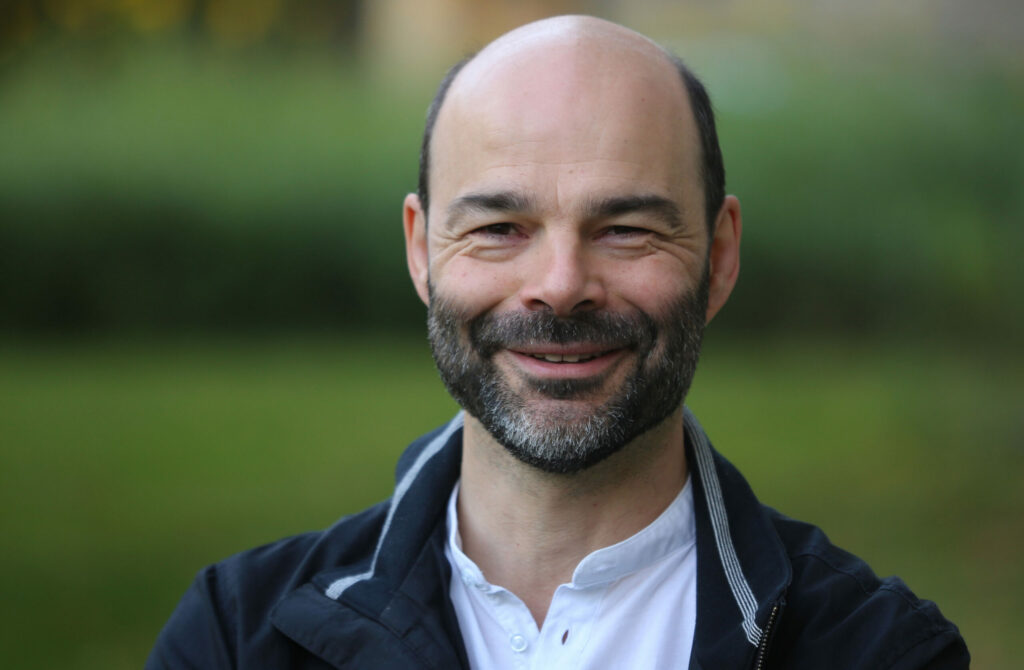The brainers

Roland Lehoucq – Astrophysicist
Roland Lehoucq is an astrophysicist in the Astrophysics Department at CEA Saclay. He teaches at the Institut d’études Politiques and in the ASE2 Master’s program (Social Approach to Energy and the Environment) at Paris Diderot University. He has published numerous works, including “La science fait son cinéma” and “Faire des sciences avec Star Wars”. Since 2012, he has been President of Utopiales, the international science fiction festival in Nantes. The asteroid (31387) Lehoucq bears his name in tribute to his involvement in the dissemination and sharing of knowledge.
This brainer takes part in round-table discussions, offers improvisation sessions and the following solo talks:
Interstellar travel
Interstellar travel: Interstellar provides an ideal opportunity to revisit what is probably one of the greatest themes in science fiction: interstellar travel. For scientists, interstellar travel is “thinkable”, if not rapidly achievable. The president of Utopiales takes a closer look. Welcome aboard our great ship!
Does the invisible man have a shadow?
Transparent mutants, invisibility armor, stealth ships, midichlorians... Fantasy and science fiction are full of invisible or microscopic characters and devices. The desire for invisibility is very present in the collective unconscious. Come and discover or rediscover these invisible objects in the light of our current knowledge. Can you make an invisibility cloak? Why is it easier to go unnoticed in water than in the air? On Earth, how do animals make themselves invisible or detect the invisible? A scientific conference that won't go unnoticed...
Planète à gogo
The planet is almost a character in its own right in science fiction stories. The most conventional way of constructing one is to make a replica of our good old Earth, but some are more original: huge or tiny, icy or boiling hot, barren or teeming with life. However glittering, are these imaginary worlds scientifically credible? What do we know about the real exoplanets discovered around nearby stars? Let's embark on a scientific expedition to the worlds created by science fiction.
Gravity without weight
What a film! Gravity is undeniably a visual marvel, immersing us in space with images rarely seen before. Yet the breathtaking sequences that punctuate the film were not shot in space. To achieve the weightlessness of his orbital thriller, Alfonso Cuaron has masterfully dealt with the Earth's gravity, which constantly imposes itself on us. But is the film as realistic as it seems? Has Cuaron overlooked a few details? During this conference, we'll be investigating for the pleasure of understanding a bit of orbital physics and realizing that, decidedly, space is a curious place.
Exploring the physics of Interstellar
The film Interstellar left a lasting impression with its breathtaking images. Having benefited from the advice of a physicist, the film manages to pay a fine tribute to one of the most fascinating objects in the universe: the black hole. But is the film as realistic as it seems? Didn't Nolan “negotiate” with Einstein to build his story? What information can we deduce from the worlds presented? In this lecture, we'll be investigating for the pleasure of understanding a little physics, and realizing that the universe is indeed a curious place.
Is the world of Avatar realistic?
Pandora, the planet on which Avatar takes place, has been the stuff of dreams for millions of moviegoers. The film's aesthetic qualities are obvious, but some of its scenes have an air of déjà vu about them. Is its exoticism pure imagination, or is it rooted in scientific knowledge? Is the peculiar planetary system of Pandora conceivable? Are its fauna, flora and geological wonders credible? In this talk, we'll examine all the curiosities of James Cameron's film. Using the tools of science to decipher certain scenes from the film, we'll also investigate: how big is Pandora? Where does the Na'vis tribe at the heart of the plot live? This questioning transforms the spectator into an actor very close to the astrophysicist who, to question the universe, has no other source than the starlight captured by his instruments. At the end of the investigation, his world will be transformed.